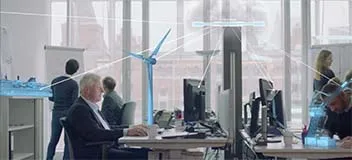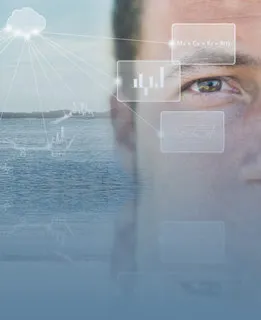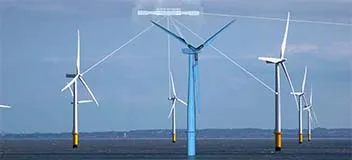"You promised me Mars colonies. Instead, I got Facebook," astronaut Buzz Aldrin lamented.
What to do when machines do everything
In "What to Do when Machines Do Everything", authors Malcolm Frank, Paul Roehrig and Ben Pring reflect on how our global economies have changed through each industrial revolution, and how that affects gross domestic product. The early days usually make only a few people extremely rich. In our current era, this means Mark Zuckerberg, Jeff Bezos, Elon Musk, Larry Page, Sergey Brin, Bill Gates, Steve Jobs, Larry Ellison and a handful of others. For sure, we have all benefited from Amazon, Google, Apple or Facebook to some extent. But as Buzz Aldrin commented in MIT Technology Review, it is hardly of the magnitude of a colony on Mars. Nor is it something that has changed the global economy growth in any significant way. In contrast to previous equivalent stages in history, it has largely focused on social or recreational advancement.
So, when is cloud technology and its accomplices going to give us real change?
Now. Yes, right now. At the heart of the current paradigm shift is cloud technology and the accompanying game changers, Internet of Things, artificial intelligence, machine learning and edge computing.
A new economy in data and information
These elements have all been around for decades but in recent times have all gone through fundamental “aha” moments that have transformed them into practical tools on an industrial level. Whether it be the cost efficiency in sensors, the step changes in communications options or the breakthrough in machine learning from the availability of vast learning sets and the computation power to make deep learning practicable. And maybe Google, Facebook, Instagram and cohorts have laid the platform through their capture of “samples” for machine learning. The discussion on sensors, communications, computing power may all appear like a chicken and the egg debate but without them the generation of the data that they are responsible for we would not have made the step changes in analytics.
This is generating a new economy in data and information that will vastly improve how we make decisions, and their quality, in operating today’s core industries. For example, look at how Google and Waze have given us insight to road conditions and are ever improving the accuracy of time estimates for our journeys. Netflix, Amazon, iTunes, Spotify and Facebook are steadily improving their ability to predict our individual interests. Crowd sourcing of data means that the recommendations are not only based upon your actions, they are based on those of millions of people. In these examples data is passively collected (no effort from you!), it is then processed and fed back in ways that the providers think are insightful (as well as drive their advertising business, of course).
Can we use the same techniques in industry?
We have not yet achieved anything close to this scale on an industrial level. One challenge has been the mechanism of collecting data and transmitting data in an industrial setting in sufficient quantity to make the benefits worthwhile. The other has been a mindset based on the fear of losing control of data – and with it, business advantage. But we are now entering a period where cloud technology is fit to serve industry in this same way.
Crowd sourced data spurs change
Take crowd sourced data as an example. Autonomous cars will soon become a routine part of our lives. Of course, this will allow transport or haulage companies, including Uber and Lyft, to cut costs and create efficient operating schedules. It will revolutionize transport for people who can’t drive. However, it goes much further. With vision and sensor technology autonomous vehicles can identify all sorts of objects and how to adapt to them. If you are a gas, electric, water or telecom utility this could mean crowd sourced identification of excavation equipment, roadworks or digging. The utilities can receive this information in real time to replace or supplement the routine surveys that they do, correlate with known activities and take actions where there is suspected unauthorized excavation activity threatening their assets.
So, our autonomous cars provide a society and business benefit to utilities through passive data gathering. Amazon and others are introducing drone-based delivery capabilities. If this grows, as it will surely do, then we have yet another platform that can easily provide additional input from existing or added sensors. For example, this can affect the detection gas leaks and give a much wider and more frequent leak survey than is currently feasible for utilities.
In the utility world, think too of your home automation – thermostats, lighting, etc. This too will become an integral part of the wider energy supply and demand chain. Then we have additional social media input from Facebook or Twitter with on-location news updates and identification of incidents. The fusion of data from public, consumer and industrial providers for industrial advancement is in its infancy in the cloud environment.
Predicitive analytics support a sustainable future
Take this concept to the industry level. We could enable sharing of asset and equipment performance, failures and incidents. This is where industry lags the social applications in a major way. Knowingly or otherwise we have contributed to the vast information sets that make the high quality deep learning analytics we are witnessing possible in social applications and some limited industrial applications. This becomes of major interest because many of the failures on any type of equipment, including pipelines, plants, structures, electric networks, ships, aircraft and construction materials are down to error or to very rare forms of failure mechanism. Sharing those in a framework where they can be used to advance understanding to the benefit of industry is an attainable goal. Improved predictive analytics is logical socially, environmentally and in terms of business performance for anybody seeking a sustainable business future. This can all be done anonymously, without compromise to critical infrastructure, and with no threat to competitive advantage. In fact, those who do not take an active part in the data community will suffer and lose advantage. The new technologies are in place to collect the required industrial data at the volumes and collection rates necessary. What is stopping us? Mindsets and culture are probably the main blocker to the full realization of the benefits.
Accelerated growth in digital revolution
The day is very close when all our industrial assets are operated by artificial intelligence. However, that is not the complete story. Today we can see that our work processes are fundamentally changing. But there are new industries that we haven’t yet imagined, and new jobs that go along with them. Who, 40 years ago, expected the internet to be such an invasive and critical part of most all of industry as well as our personal lives? We will see even more change, and sooner than we may imagine. As we move into this accelerated growth period in the digital revolution we will certainly get the industrial equivalent of colonies on Mars.
Perhaps Buzz Aldrin will also witness this revolution in industry, where it is changed beyond our wildest current vision. And maybe this will be even better (and more impressive) than a colony on Mars.
Author: Tom Gilmour, Head of Product Strategy, DNV - Software


